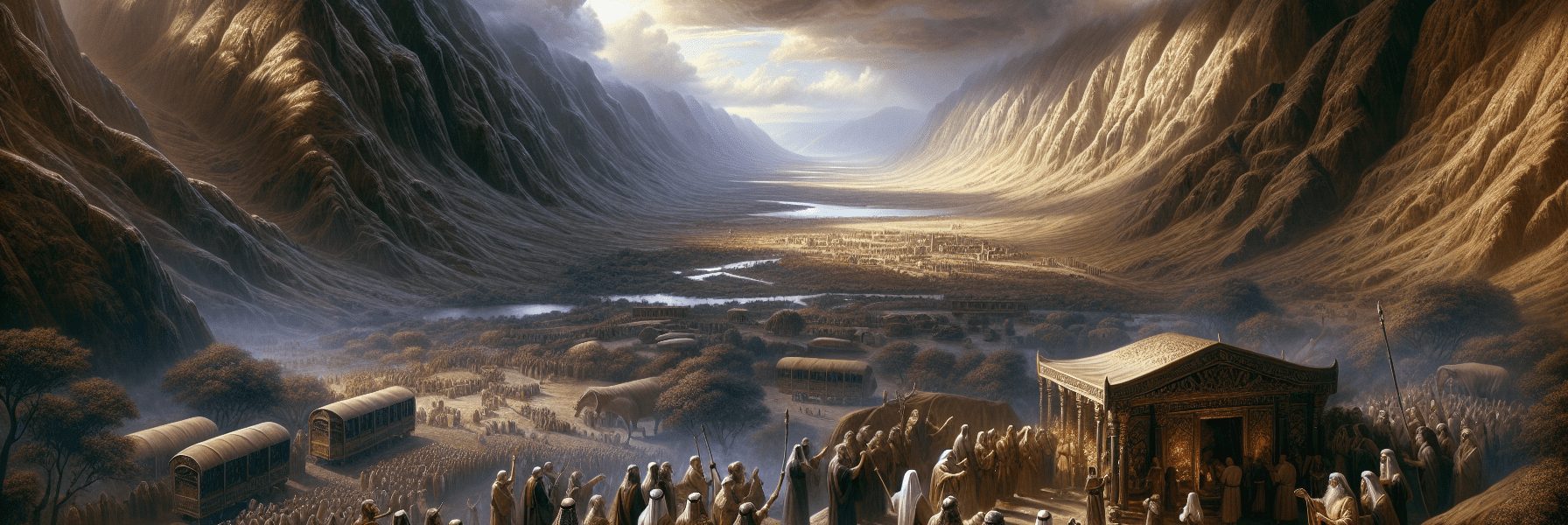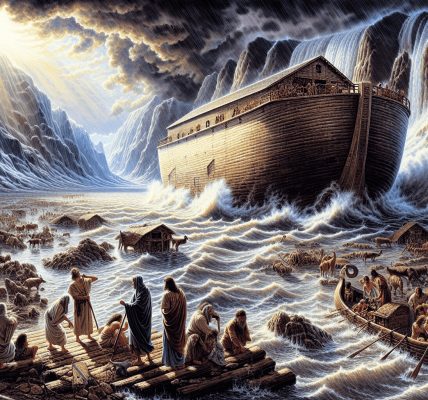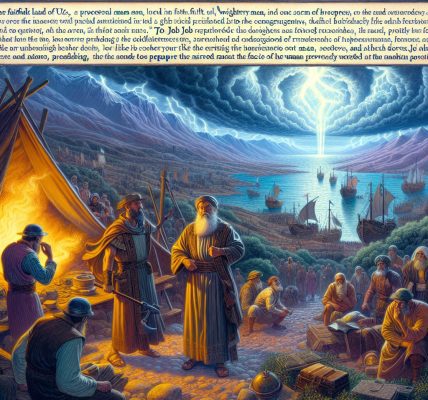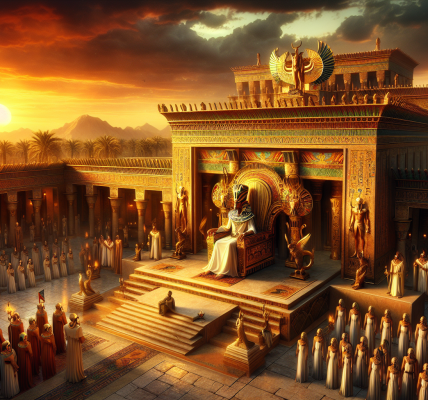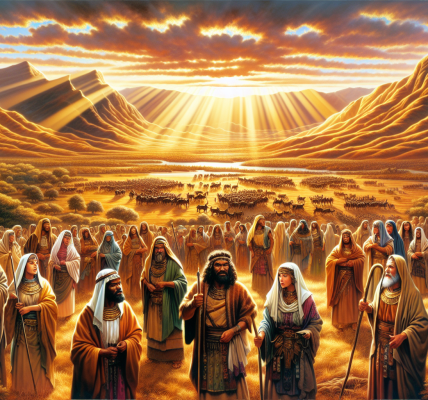**The Return of the Ark and Israel’s Repentance**
The land of Israel had known little peace in those days. The Philistines, fierce and unrelenting, pressed hard upon the tribes, and the people groaned under the weight of their oppression. For twenty long years, the Ark of the Covenant had remained in Kiriath-Jearim, silent in the house of Abinadab, his son Eleazar consecrated to guard it. Yet during this time, the people of Israel had not truly sought the Lord with all their hearts. They bore the scars of their disobedience, and the shadow of their past sins stretched long over the land.
Then came the voice of the prophet Samuel, rising like a clarion call over the hills of Judah. He stood before the elders of Israel, his face lined with years of faithful service, his eyes burning with divine urgency. “If you are returning to the Lord with all your hearts,” he declared, “then rid yourselves of the foreign gods and the Ashtoreths among you. Commit yourselves to the Lord and serve Him only, and He will deliver you from the hand of the Philistines.”
A great stirring moved through the people. The words of Samuel pierced their hearts like a sharpened sword, cutting away the layers of complacency. One by one, they turned from their idols—the small household gods of Baal, the carved images of Asherah—and cast them aside. In the town of Mizpah, they gathered as one, drawing water and pouring it out before the Lord in a solemn act of repentance. They fasted that day, their hunger a testament to their sorrow, and confessed, “We have sinned against the Lord.”
Samuel, seeing their contrition, took his place as their intercessor. As the people stood trembling before the Lord, he offered a sacrifice—a young lamb, pure and unblemished, its blood spilled upon the altar as a plea for mercy. The smoke of the offering curled upward, a sweet aroma rising to the heavens.
But the Philistines, ever watchful, heard of the gathering at Mizpah. Their warlords sneered at the notion of Israel seeking their God. “They muster for battle,” they said, and with swift arrogance, they marched their armies toward Mizpah, their spears glinting in the sun, their chariots rumbling like distant thunder.
Fear seized the Israelites. The memory of past defeats flashed before their eyes—the slaughter at Aphek, the capture of the Ark, the humiliating yoke of Philistine rule. They cried out to Samuel, “Do not stop crying out to the Lord our God for us, that He may rescue us from the hand of the Philistines!”
Samuel, unwavering, took a suckling lamb and offered it as a whole burnt offering, crying out to the Lord on Israel’s behalf. And the Lord answered.
As the Philistine forces closed in, the skies themselves seemed to tremble. A great thunder, not of nature but of divine fury, erupted over the enemy ranks. The earth shook beneath their feet, and panic, swift and terrible, spread among the Philistines. Their formations broke like shattered pottery. Warriors turned on one another in confusion, their swords striking their own kin. The mighty host that had come to destroy Israel was now a chaotic, fleeing mob.
Seizing the moment, the men of Israel surged forward from Mizpah, pursuing the Philistines all the way to Beth Kar, cutting them down as they ran. The victory was decisive, a turning point in Israel’s long struggle.
To commemorate the Lord’s deliverance, Samuel took a single stone and set it upright between Mizpah and Shen. He named it *Ebenezer*, saying, “Thus far the Lord has helped us.” The name was a declaration, a reminder to all generations that the hand of the Almighty had once again been stretched out for His people.
And so, the Philistines were subdued, their raids ceasing for a time. The towns they had taken—from Ekron to Gath—were restored to Israel, and there was peace between Israel and the Amorites.
Samuel, now recognized as judge over all Israel, traveled year after year, making his circuit between Bethel, Gilgal, and Mizpah, judging the people with righteousness. Under his leadership, the people learned to walk in the ways of the Lord once more. And though the land was not yet free of all strife, the foundation had been laid—a return to faithfulness, a renewal of covenant.
For the Lord had shown Himself mighty on behalf of those who sought Him with repentant hearts. And His mercy, like the dawn after a long night, had broken once more over the hills of Israel.
